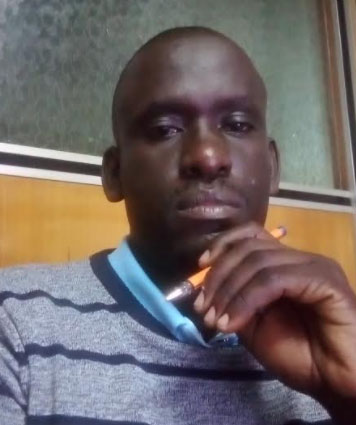
COMMENT | Samson Tinka | At a security briefing at Police headquarters end of March, Commissioner Fred Enanga informed the public that nine private security companies had been suspended and two banned from operations. Of course reasons were advanced as to why Police authority had to take that action.
The merits and demerits of that decision is a debate for another day, focus today will be on the formation, operationalization, regulation of private security entities in Uganda.
Uganda has over 250 registered security companies across the country. Commonly known as ‘securiko’, these companies support government security agencies in providing security to both private companies and parastatals.
The services offered ranges from home, office, facilities guarding to intruder alarms, CCTV installation and surveillance. Also on the list is Cash in transit- Commonly called CIT, body guarding (close protection) private investigations, car tracking- fleet management, vault facilities, escort and emergency response.
Private Security Organisations (PSOs) provide basic and high level security services which would have been a preserve to police and other security services. Security guards and officers provide information and intelligence to police
The first security company to be incorporated in Uganda was security 2000 formed in 1988, followed by Amor group in 1993, then Saracen, Protectorate Spc and the rest.
These services offered are critical to the economy and also to crime prevention and management. The same security companies provide over 50,000 jobs to the young Ugandans with multiplier effect of close 200,000 lives depending on these men and women in uniform.
Very few sectors that provide such jobs. The private security sector is solely providing security to the business sector. The business sector from hotels, to industries, factories, banking, tourism name it all rely on private security companies. Of recent, government attached a few policemen to some high level facilities to support Private Security Organisations (PSOs), but largely the security work is done by PSOs.
Statutory instruments 2013 NO.11 outlines how PSOs are regulated. PSOs are managed by police under the department of private security organization and fire arms control headed by Acting Commissioner Charles Ssembambilidde.
The offices of PSO department is understaffed, with less that 10 officers on duty, and is hidden in a very old building at police headquarters Nagaru. There is hardly any regular engagements with the PSOs, and if there was routine inspection, some of these companies wouldn’t have been suspended.
Police regulations actually state that for the purposes of ensuring that private security organizations perform their duties efficiently and effectively the Inspector General of Police shall set standards of performance and ensure that there is— (a) proper and regular training of all the personnel of a private security organization.
This is where the big gap is felt. Very few private security companies have training facilities. Those with training facilities, they are substandard.
Ideally this is the area I fault Uganda police leadership. It’s an area I believe they continue to use baby gloves. But also its an area they can easily support PSOs, especially in training.
They can offer training grounds like Kabalye, Oririmi, Kibuli and others to PSOs without training facilities or offer free or leased police land for this.
Currently some PSOs train their guards for one week, two weeks, one month’s whereas others train for two or so months. This literally means we have different products in the service market. Imagine someone holding a loaded gun after going through two weeks training. This is dangerous.
The security agencies should also stop poaching PSOs when recruiting
Every time police, prisons and UPDF is recruiting, PSOs loose close to 30% of their personnel to these institutions. PSOs spend a lot of money through recruitment, training, welfare, dressing security officers. And then soon after, the other government security agencies mentioned above come and poach.
The PSOs have an important role in development of a country, and ensuring they thrive independently, is crucial to the economy.
Oil and gas sector
Saracen alone is providing guards to main oil and gas players, Total, CNOOC and others. Close to 5000 guards will be deployed in oil exploration area by Saracen alone. The total number of guards for both refinery, explolation and pipeline is estimated to be close to 19000 people. These guards will be critical or are important in access control management, incident management, logistics housing and movement, Risk and threat management, CIT, escort among others. Oil and gas is the thing now; the whole country is cushioning its development on it. Security being a major player in this sector, should be assisted in skilling, training, capacity building among others.
Security services
Cash in transit for commercial banks and other private businesses are largely provided for by private secuirty organizations. Cash movement is critical to the economy. Banks in Kihihi, Moroto, Yumbe, Kalangala, Kisoro need physical money. Churches in Kampala use bullion vans, Manufacturing companies like Mukwano, roofing’s, etc use CIT services. Etc. These CIT services make the economy move. As a country we are still far from cashless economy.
International NGOs, agencies, Telco’s like MTN, and other multinational institutions also benefit from security services offered by PSOs.
As in 2019, before covid19 came to mess up the economy, PSOs were remitting over Sh760 billion to Uganda’s coffers.
To reap more from this sector in terms of greater security, employment, and revenue for government, PSOs should be placed under fully fledged directorate headed by a director at a rank of AIGP. Currently its under directorate of operations. With Uganda police bureaucracy, matters impacting on PSOs take long to reach IGP.
It would be even better if there was an authority created for only PSOs.
Generally, from where I stand, PSOs are cash cows for the government when well managed. As it is now they are not only neglected but dumped in an endless pit. They need to be supported holistically. The benefits are visible. Like I wrote sometime back, the external recruitment agencies are not better either though there has been some form of government waking up to stream line though the speed is snail like. Sometimes one wonders where government priorities are?
Dear my beloved Police authority and Uganda government at large, look at PSOs differently from legislation, to management and operations. These companies have capacity to overtake gold, coffee, fish and tea in both employment and revenue contribution to Uganda.
 Samson Tinka is a safety and security consultant | Director Matts Secure Solutions Ltd | tindsam@yahoo
Samson Tinka is a safety and security consultant | Director Matts Secure Solutions Ltd | tindsam@yahoo
 The Independent Uganda: You get the Truth we Pay the Price
The Independent Uganda: You get the Truth we Pay the Price



It is problematic when insecurity and lack of general safety becomes lucrative private business for officials responsible for public safety policies. This seems to be the case in Uganda as many of the private security companies belong to government officials, their relatives or people connected to them. Police in Uganda has abdicated its public safety role and is now more of a political militia force. Yet the most cost effective and most efficient way to provide public safety is through a well functioning police force financed by tax payers.
Well put it.